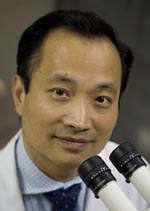The pharmaceutical industry has provided the world with incredible medical breakthroughs. Because of Salk’s (and Sabin’s) research and generosity, polio no longer ravages bodies or brings fear to communities. Diabetes can be managed with a number of products, giving diabetics a higher quality of life than ever before. With the birth control pill, women can effectively plan the size of their families and for many, gain relief from menstrual cycles that are unregulated, abnormally heavy, or painful. From your place in a pharmaceutical company, you are uniquely positioned to change the world in positive ways, to improve the lives of millions, known and unknown to you. It is a tremendous opportunity to be an actor for good.
And yet, as a collective, you are killing us. You have taken your opening for good and in the name of profit, are doing us harm. According to the Centers for Disease Control and Prevention (CDC), “Every day, 44 people in the U.S. die from overdose of prescription painkillers, and many more become addicted.” While prescriptions for pain medication have soared in the last two decades, the amount of pain suffered by Americans has not. In fact, Americans, who pay some of the world’s highest fees for prescription medications, are only 5% of the world’s population. According to theNational Institute on Drug Abuse (NIDA), that small American population consumes 75% of the world’s prescription medications. The World Health Organization (WHO) reports that in a $300 billion industry, with 30% profit margins, companies spend twice the amount of money on marketing that they do on research and development. WHO goes on to indict the pharmaceutical industry, proclaiming that there is “an inherent conflict of interest” between the business goals of pharmaceutical companies and the health and welfare of human beings.
Are you part of a group that is bolstering profits by using medications to manage diseases without looking for the cures that would make us all so much healthier and happier? Are you marketing drugs that ultimately serve no medical purpose to most of the people you sell to? If so, you are doing the public wrong.
As a professional in addiction treatment, I am one of those people, faceless to you, who deals with the wreckage your companies leave behind. I receive the 3 a.m. phone calls from terrified mothers and fathers in hospitals, who don’t know if their loved one is going to make it till morning. I am one of many who tirelessly advocates for the widespread availability of naloxone as a desperate measure to revive those who have overdosed from substances that in every way are sucking the life out of our friends, family members, neighbors, and communities. I go to the funerals of too many who don’t make it, who succumb to the drugs that without medical purpose, become poisons. I buried my own cousin five years ago from sepsis related to long-term opioid abuse. Her mother dedicates her life now to comforting other parents who have lost or are losing their children to opioid dependence.
Let’s set aside public policy and economic debates and communicate simply as one healthcare professional to another. If your goal in the work that you do is anything other than the public good, helping the ill become healthy or preventing the spread of disease, find a new profession. We are depending on your company not to sell the most expensive drugs to the most people possible for the longest term. We hope and pray that you will cure and prevent disease. By being involved in the pharmaceutical industry, you have implicitly taken a sacred oath, no different than physicians, to help the public. We need your intelligence and your experience. We have put our trust in you.
As for making a profit, there is plenty of money to be made without doing harm to your fellow man. At the addiction treatment center where I serve, we make a substantial profit, mostly by providing high-end services in a luxury setting, for clients who want to receive their addiction treatment in a beautiful and comfortable environment. Five years ago, when I first started with the company, we were a boutique facility with 18 beds. We started 2016 with 100 beds and may double that before the end of the year; we have grown mostly in affordable care facilities where our profit is made in volume rather than luxury. Our primary focus always is on helping individuals overcome addiction and reuniting families. Building an expectation of relapse into our treatment plan or using pharmaceutical management therapies, which could profit us even more than helping people abstain completely from addiction, are not part of our business model. Our responsibility as health care providers, and make no mistake, that is what you are too, is to improve the lives of those we serve. There is plenty of money in that.
You have far more power than you think to be the spark of change. Is your commitment to profit for profit’s sake or do you want to see the scourge of illness and disease lifted from the backs of humankind? Make a profit. It’s the American way. But do so in a way that first does no harm. Not only will you sleep better at night, but many more of us will live to see a new morning.

